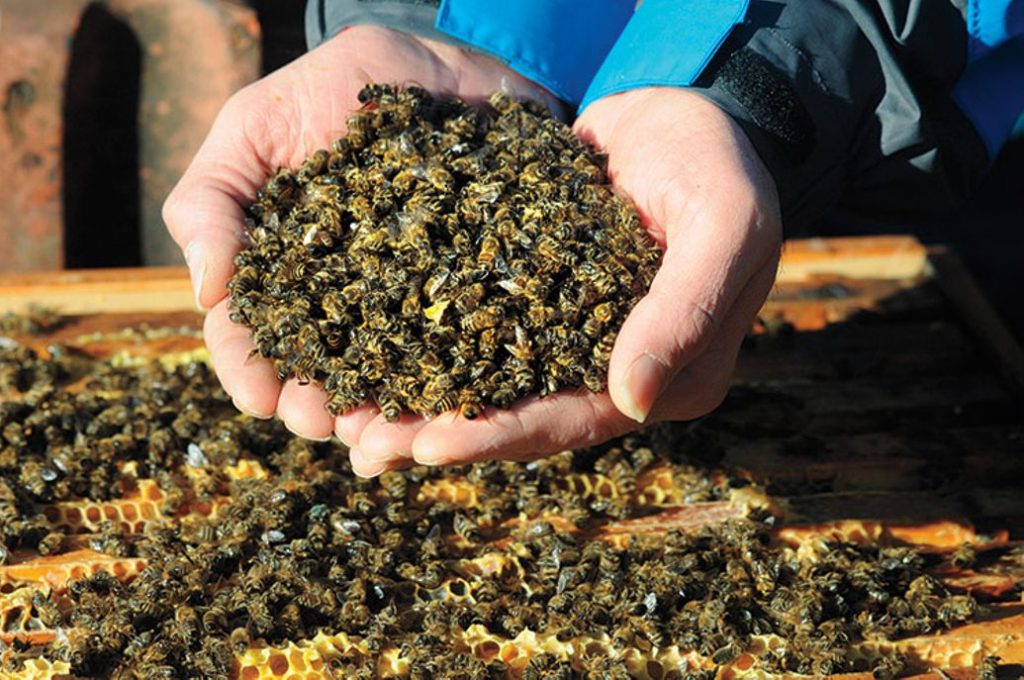The buzz about honey bees isn’t good.
This winter has seen one of the biggest honey bee die-offs in the US on record, with 37 percent of managed honey bee colonies lost from October 2018 to April 2019.

The new report shows that the rate of honey bee colony loss was nearly 9% points higher this winter compared to the average winter loss.
“These results are very concerning, as high winter losses hit an industry already suffering from a decade of high winter losses,” stated Dennis vanEngelsdorp, Maryland entomology associate professor and Bee Informed Partnership president.
Bee experts from the University of Maryland, Auburn University, and other colleges reached their findings after surveying 4,700 beekeepers across the US, accounting for over 300,000 colonies, over the past 13 years.
Long reel of factors
While their research didn’t look into the cause of this effect, there’s a long reel of factors that are known to be bad news for bee populations:
- The first is pathogens and parasites, which humans have limited control over.
- The second two factors are our responsibility: industrial agriculture, namely the use of pesticides and the destruction of habitat.
Bee warning
Concerns about the world’s bees started to mount in 2006 when scientists noticed that many hives were experiencing what’s now known as colony collapse disorder (CCD). Seemingly out of nowhere, the bulk of worker bees would ditch their queen and abandon the otherwise healthy colony. Oddly enough, the problem of CCD has decreased over the past few years; however, bees are still struggling against the intensification of agriculture worldwide.
Problem for food production and solutions
This isn’t just bad news for small buzzing creatures or lovers of honey. Insects, including honey bees, play a fundamental role in food production. Some crops, such as blueberries and cherries, almost totally depend on honey bees for pollination. In fact, almonds are entirely dependent on honey bees for pollination during bloom season.
There is no straightforward solution for these fiddly problems. That said, the team hope to encourage further research into the role of weather patterns and work overload on honey bee colony losses to address the problem before it’s too late.
“Just looking at the overall picture and the 10-year trends, it’s disconcerting that we’re still seeing elevated losses after over a decade of survey and quite intense work to try to understand and reduce colony loss,” added Geoffrey Williams, assistant professor of entomology at Auburn University and co-author of the survey. “We don’t seem to be making particularly great progress to reduce overall losses.“
A good documentary on bees and their population collapse is called ‘More Than Honey’.
[BeeInformed, Picture: The Investigative, IFLS]












Aluminum from geoengineering is killing everything
It’s not that at all. ALL of this: bees, weather, ALL of these goings on is God’s LAST warning to get right with Him and to come to Jesus Christ.. Time is SHORT. Jesus Christ is coming for we who are His own SOON. Wake up and seek Christ while He can still be found, and salvation through Him.
“Except a man be born again, he’ll not see the Kingdom of God” (John 3:3) Words of Christ Himself.